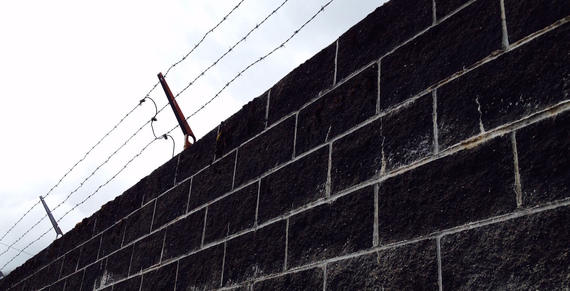Last year, U.S. Immigration and Customs Enforcement (ICE) deported 315,943 people. Many of them were our friends and family members. They worshiped at our churches, attended our schools and fought for us in our wars. While most were deported to Mexico and Guatemala, approximately 245 were deported to Costa Rica, and like Noe Martínez Sandino, they hope that one day the United States will welcome them home.
Noe Martínez Sandino is the third writer in CIVIC's series of blog posts called "Words Beyond Walls." He was deported earlier this month to Costa Rica. These are his words beyond walls:
"I came to the United States in 1996, arriving first in New Jersey. I worked hard, building a small painting company in Florida that employed approximately 40 people. I sent my earnings back to Costa Rica to take care of my mother who needed a kneecap replacement surgery, my sister who is suffering from cancer, and my grandson who was born with severe hearing and lung problems. My mother--la madre más excelente--eventually passed away without me by her bedside, but my sister and my grandson live on because I was able to pay for their medical needs when I lived in the United States. Although I lived in the United States for many years undocumented and have suffered through two deportations and countless time in U.S. immigration detention, I would do it all over again because I love my family and it was the only way to pay for the medical treatments my family needed.
Today, I write from a hospital in Costa Rica because I was deported on April 7, 2015, after spending five weeks in U.S. immigration detention. I was held first at the Krome Service Processing Center in Miami, Florida, many years ago. More recently, I was detained in Laredo, Texas, in a very small space that they called the coolers. There were approximately 120 other people in this small space, where there were no beds or blankets. I tried to sleep there, standing for two days. Eventually, I was transferred to the South Texas Detention Complex in Pearsall, Texas, and then to the South Louisiana Correctional Center in Basile, Louisiana. The first time I was held in immigration detention, I was scared because I had never been inside a prison.
Transfers between facilities are terrifying. At midnight on March 12th, an officer came to my cell at the South Texas Detention Complex and told me to pack my things as I was 'being processed for shipment.' I, along with others, were moved to a cold room, which they called the cooler. At four in the morning, two officers came and handcuffed our feet and hands with a chain around our waists. At five in the morning, we were taken on a bus to an airport about two hours away. We waited, and at 10 in the morning, we were bussed back to the Texas facility because we were told the plane had broken and the flight was canceled. We stayed in the cooler the rest of the day and that night, handcuffed. We had no bed or blanket. We received only four sandwiches, and then a juice each morning.
At midnight on the 13th, we were let out of the cooler to use the bathroom and change our clothes. We were unable to use the phone during this ordeal, and I was afraid that my family was worried. The following night on the 14th, they shackled us again and bussed us to the airport. First, we stopped in another town to pick up other prisoners, which elongated our travel experience. We remained shackled for 14 hours straight.
The medical treatment in U.S. immigration detention is inhumane and insensible. I currently am suffering from severe kidney problems, which ICE knew about. But in detention, my medical condition was treated first with doubt, then with ibuprofen, then with lies about my health, and finally with deportation. Despite blood in my urine, I had to wait for two weeks to get basic pain medication. Despite uncontrollable pain, ICE told me I was lying about my health. Despite requests for my medical record, I have not received a copy of my medical record. I believe my rights have been violated, both under international and U.S. law. I have filed a formal civil rights complaint with both the Office for Civil Rights and Civil Liberties and the Office of the Inspector General. I am speaking out today publicly because I want to see change. I want no one to go through the endless hours of pain I have gone through.
Despite this treatment in U.S. immigration detention, I love America. The United States of America is a good country. It is a country that, with hard work, will give you the means to provide for your family. For example, in the United States, I worked two days to earn the money needed for medicine for my family in Costa Rica. In Costa Rica, it would have taken me twenty days to earn the same amount of money, and I would not have had any financial reserves to pay rent, buy necessities, and take care of my family. America is a country that gives opportunities not offered in any other country to develop goals, and I hope one day, I will be welcomed back to the United States as a hardworking man with good values."
This is the third in a series of posts called "Words Beyond Walls." To stay connected, join us on Facebook! Check back in for more posts in this series in the coming months.

